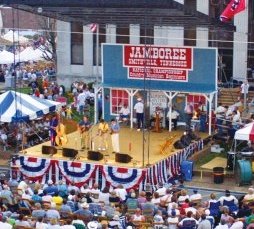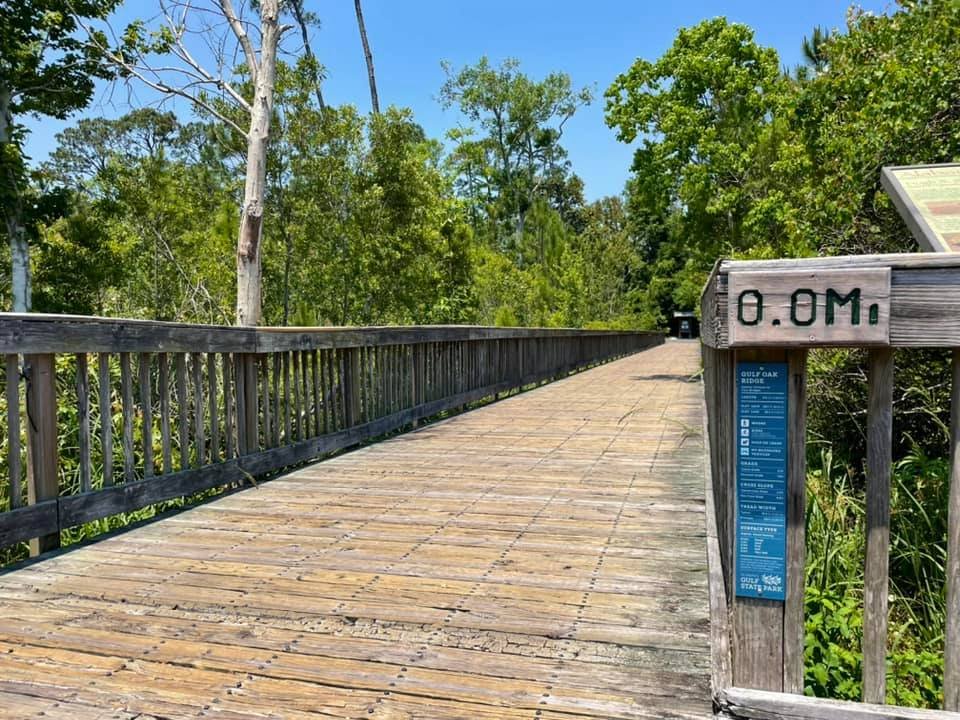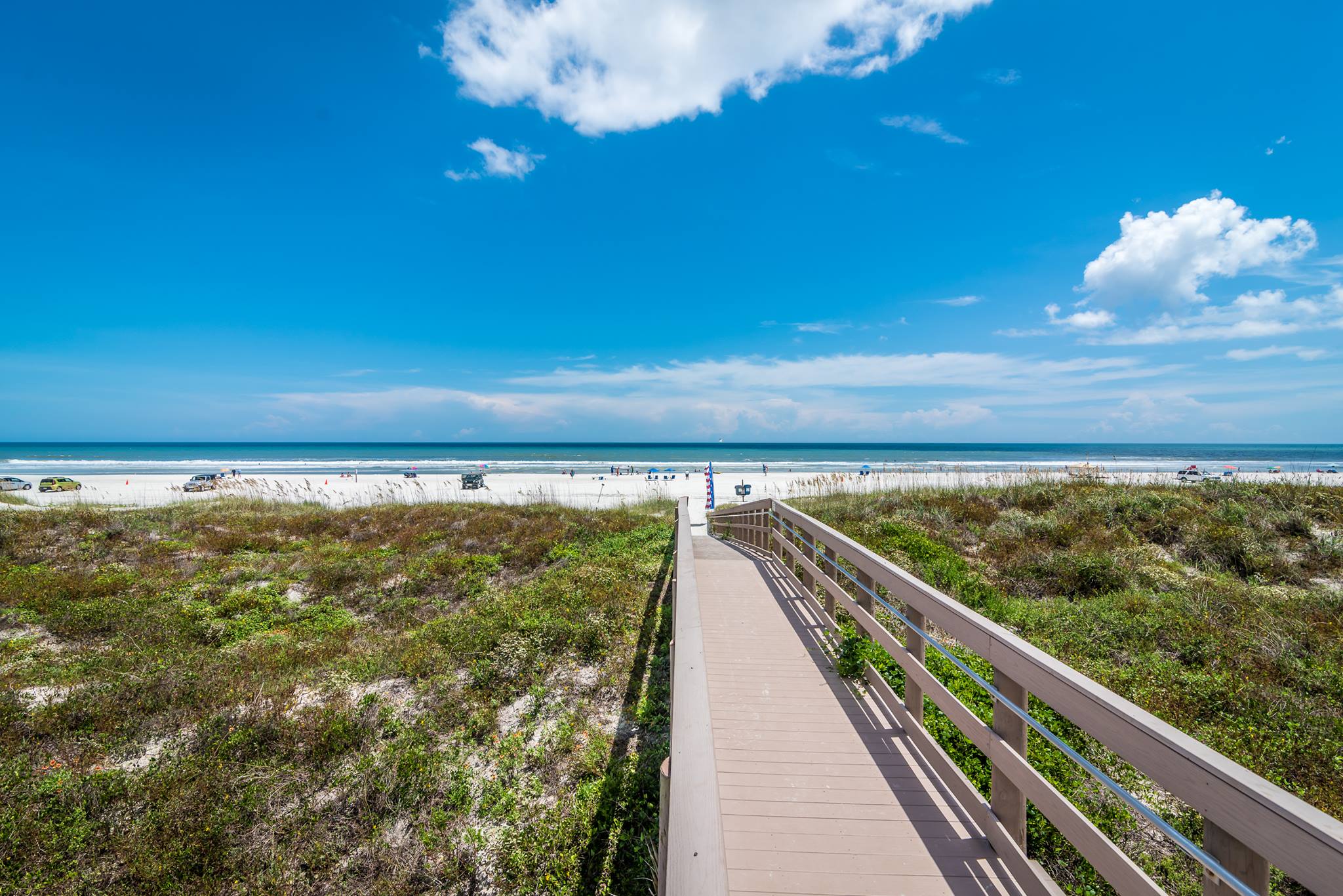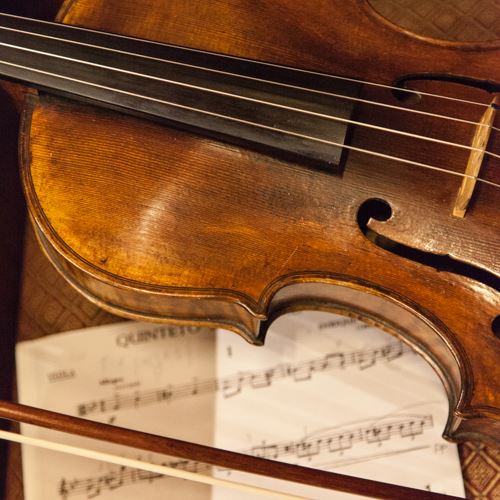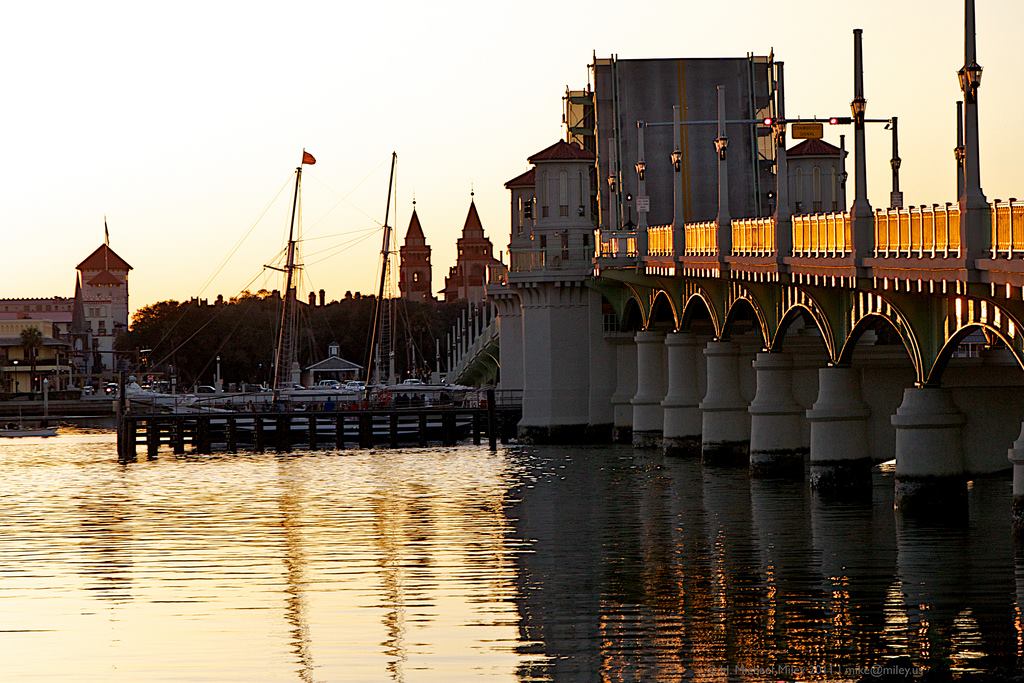Save on Fees and Experience Professional Service
ST AUGUSTINE AREA
- 2 Vacation Rental Managers
- 156 Vacation Rentals
- St Augustine Area Guide
- Local Events
- Local Attractions
IDEA DRIVEN VACATIONS
Search for Travel Guides, News, Events, Special Interests, and More!
-
Activities and Interests
Uncover fun activities and special interests for your upcoming trip
-
Event Travel
Plan your trip around concerts, festivals, and special events worth traveling for
-
Attractions
Explore top landmarks, scenic spots, and can't-miss local highlights
-
Travel Guides
Navigate each location like a local with our detailed travel guides
-
Travel News
Stay updated with the latest travel trends and vacation rental tips
-
Trip Ideas
Find inspiration for your next getaway with curated trip suggestions and themes
-
Travel Newsletter
Join our newsletter for exclusive travel insights, featured destinations, and trip planning tips
TRENDING
Annual Three Oaks Flag Day Celebration
June -
Northern Michigan
Virginia Beach Virginia Travel Guide
Virginia Beach Virginia
Caribbean Rental Management Companies
Caribbean
Vacation Rental Managers, Vacation Rentals, Travel Guides, Event Travel
July -
Smithville Tennessee
Hugh S Branyon Backcountry Trail Orange Beach
Orange Beach Alabama
Cathedral Basilica of St. Augustine
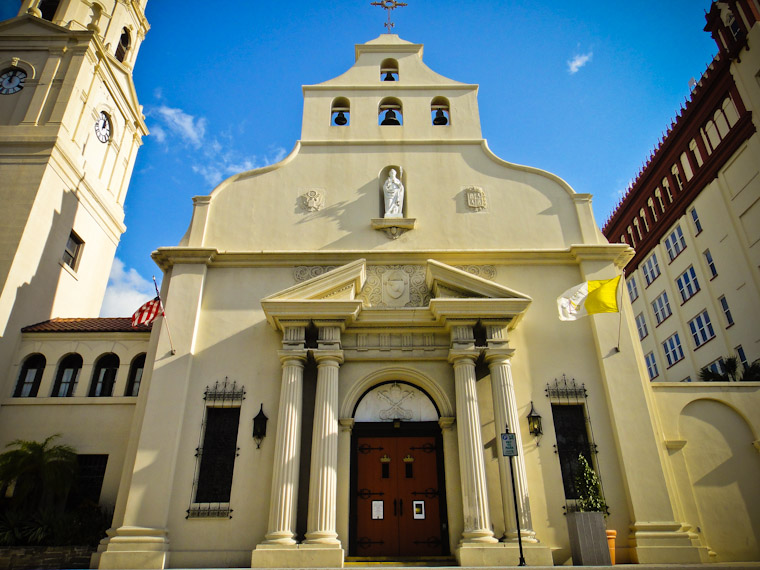
The Cathedral Basilica of St. Augustine, founded in 1565, is a stunning blend of Spanish Colonial, Neoclassical, and Baroque architecture. Its resilient structure has withstood pirate attacks, fires, and hurricanes, embodying the community's enduring spirit. You'll find ornate altarpieces, pointed arches, and vibrant stained glass windows depicting biblical scenes. Restoration efforts respect its historical essence while utilizing modern techniques. As the oldest continuously occupied European-established settlement in the continental U.S., the basilica serves both as a spiritual haven and a historical landmark. There's much more to uncover about its intriguing past and artistic treasures.
Key Takeaways
- The Cathedral Basilica of St. Augustine is the oldest continuously occupied European-established settlement in the continental US, founded in 1565.
- The basilica showcases Spanish colonial, neoclassical, gothic revival, and baroque architectural styles with significant historical preservation efforts.
- Its stained glass windows depict biblical scenes and have undergone meticulous restoration to preserve their historical and artistic significance.
- The bell tower and nave ceiling are rich with symbolic elements, representing communication with the divine and the heavens, respectively.
- Community involvement and diverse funding initiatives support ongoing restoration and preservation of the basilica's historical and cultural heritage.
Historical Background
Founded in 1565, the Cathedral Basilica of St. Augustine stands as a demonstration to the enduring legacy of Spanish colonial influence in Florida. You can trace its historical significance back to its establishment by Spanish settlers, cementing St. Augustine's status as the oldest continuously occupied European-established settlement in the continental United States. This cathedral wasn't just a place of worship; it was a cornerstone for the community, reflecting the cultural and spiritual life of its early inhabitants.
Understanding its historical significance means recognizing how it survived numerous challenges, including pirate attacks, fires, and hurricanes. Each event left its mark, prompting successive periods of restoration. But it wasn't just about rebuilding; it was about preservation techniques that respected its original architecture while incorporating modern advancements.
Efforts to preserve the Cathedral Basilica have involved meticulous documentation and the use of both traditional and contemporary methods. Techniques like archival research, structural analysis, and the careful selection of materials have been pivotal. By maintaining its integrity, these efforts ensure that the basilica continues to be a living attestation to the past, inviting you to explore the rich tapestry of history that it represents.
Architectural Style
The Cathedral Basilica of St. Augustine exemplifies a unique blend of Spanish Colonial and Renaissance Revival architectural styles, embodying the cultural crossroads of its era. When you examine the structure, you'll notice the influence of Gothic Revival and Baroque elements, reflecting the cathedral's historical evolution over centuries. This architectural fusion isn't just a stylistic choice; it speaks volumes about the confluence of cultural and religious influences that shaped the region.
-
Spanish Colonial Elements: The basilica's stucco walls and red-tile roof are quintessential features of Spanish Colonial architecture, offering a glimpse into the past when Spanish settlers first arrived.
-
Neoclassical Fusion: Columns and pilasters incorporated into the design add a touch of Neoclassical elegance, signifying the adaptability and evolving tastes of subsequent generations.
-
Gothic Revival Details: Pointed arches and ribbed vaults, hallmarks of Gothic Revival, add verticality and light, emphasizing the cathedral's spiritual aspirations.
-
Baroque Influence: Ornate altarpieces and dramatic interiors filled with intricate details highlight the Baroque's love for grandeur and emotional impact.
Construction Timeline
Amid the backdrop of a flourishing colonial landscape, the construction timeline of the Cathedral Basilica of St. Augustine reveals a intricate narrative of perseverance and adaptation. Initially conceived in 1565, the cathedral's construction faced numerous setbacks, including pirate attacks, fires, and limited resources. Each challenge necessitated innovative solutions and a resilient spirit from the community, reflecting their unwavering dedication to this sacred project.
The construction challenges didn't end with external threats. The region's humid climate and frequent hurricanes posed significant risks, leading to continuous preservation efforts. Over the centuries, these efforts have included reinforcing the structure and employing advanced techniques to mitigate environmental damage. Such measures have guaranteed the cathedral's endurance and highlighted its architectural innovations.
You can see the community impact of the cathedral in its very stones. Local artisans and laborers invested their skills and dedication, creating a landmark that stands as a tribute to collective effort and ingenuity. The cathedral not only served as a spiritual haven but also as a symbol of communal identity and resilience, shaping the cultural landscape of St. Augustine.
Symbolic Features
When you explore the symbolic features of the Cathedral Basilica of St. Augustine, you'll notice the intricate architectural design elements that reflect Spanish colonial influence. The religious iconography, including stained glass windows and detailed frescoes, offers insight into the spiritual and cultural significance imbued in the structure. These elements collectively contribute to the historical narrative and religious heritage of the basilica.
Architectural Design Elements
You'll notice the Cathedral Basilica of St. Augustine's architectural design elements are rich with symbolic features, reflecting its deep historical and cultural significance. The structure's blend of Spanish Renaissance and Baroque influences speaks volumes about the period in which it was built and the cultural confluence that shaped it.
The structural elements like the coquina stone walls and red-tile roof are not merely functional but also symbolic of the Spanish colonial roots. These design influences are a tribute to resilience and adaptability, mirroring the spirit of the early settlers.
Consider these symbolic features:
- Bell Tower: Represents communication with the divine, symbolizing the calling of the faithful.
- Nave Ceiling: Painted with stars, it signifies the heavens and the universe, invoking a sense of awe and contemplation.
- Stained Glass Windows: Depict biblical scenes, allowing light to tell stories of faith, hope, and redemption.
- Arched Doorways: Symbolize changes and passageways, reflecting both physical and spiritual journeys.
These elements collectively create an atmosphere that transcends mere architecture. As you explore this cathedral, you'll feel a connection to a rich heritage that values freedom, spirituality, and cultural fusion.
Religious Iconography Details
Exploring the Cathedral Basilica of St. Augustine, you'll find that its religious iconography is meticulously designed to convey profound theological concepts and historical narratives. The intricate stained glass windows serve as a vivid canvas for iconography interpretation, depicting scenes from the life of Christ and various saints. Each panel isn't just artistic; it's rich with religious symbolism that invites contemplation and spiritual reflection.
Examining the frescoes and murals, you'll notice the artistic details that highlight spiritual meanings. For example, the use of gold leaf often symbolizes divine light and enlightenment, while the presence of specific floral motifs may represent virtues such as purity or sacrifice. The Stations of the Cross, strategically placed along the nave, guide you through Christ's Passion, each station offering a visual meditation on suffering and redemption.
The altar itself is a masterpiece of iconography, featuring carvings and reliefs that depict biblical events and figures. These artistic details are not merely decorative; they serve as visual theology, meant to inspire and educate. Understanding this religious symbolism enriches your experience, allowing you to grasp the deeper spiritual meanings embedded within the Cathedral's sacred art.
Stained Glass Windows
You can't overlook the stained glass windows' historical artistic significance at the Cathedral Basilica of St. Augustine. These windows not only depict colorful biblical narratives but also showcase the craftsmanship from different periods. Restoration efforts over the years have been essential in preserving their intricate beauty and ensuring their longevity.
Historical Artistic Significance
Renowned for their intricate designs and vibrant hues, the stained glass windows of the Cathedral Basilica of St. Augustine encapsulate both artistic mastery and historical depth, reflecting the ecclesiastical and cultural influences of their time. These windows aren't just decorative; they serve as a tribute to the artistic interpretation and cultural heritage of the era. By examining these windows, you'll uncover layers of iconic representation and aesthetic beauty that mark significant historical moments.
- Artistic Interpretation: Each window tells a story, capturing the artistic sensibilities of its creators and the prevailing cultural currents of the period.
- Cultural Heritage: The windows serve as visual narrations of the community's evolving beliefs and traditions, linking past generations to the present.
- Iconic Representation: Through detailed imagery and symbolism, the windows highlight significant religious and cultural icons, providing insight into the values and priorities of the time.
- Aesthetic Beauty: The rich colors and complex patterns not only enhance the basilica's visual appeal but also offer a profound sensory experience that transcends mere decoration.
In essence, the stained glass windows of the Cathedral Basilica of St. Augustine offer a multifaceted glimpse into the past, marrying artistic brilliance with deep cultural resonance.
Colorful Biblical Narratives
Many of the stained glass windows in the Cathedral Basilica of St. Augustine vividly depict biblical narratives, intertwining religious teachings with artistic expression to convey complex theological concepts. When you observe these vibrant murals, you'll notice how each pane is meticulously crafted to illustrate stories from the Bible, capturing moments of divine intervention and moral teachings.
For instance, the window portraying the Annunciation uses bright hues and intricate details to emphasize the significance of the event. The use of light and color not only enhances the visual appeal but also serves as a form of religious symbolism, guiding you to understand deeper spiritual meanings. Each window acts as a visual sermon, teaching faith and morality through art.
Analyzing these stained glass windows, you'll find that they're not just decorative elements but educational tools. They provide a narrative framework that helps you grasp theological ideas that might otherwise seem abstract. The vibrant murals bring stories to life, making them accessible to all, regardless of literacy levels.
In observing these windows, you're engaging with a rich tradition that merges art, faith, and history, inviting you to explore the profound layers of religious symbolism embedded within each scene.
Restoration Efforts Timeline
The restoration efforts for the stained glass windows in the Cathedral Basilica of St. Augustine began in the early 20th century, addressing the challenges posed by age, weather, and previous restorations. These delicate windows, which have been a focal point of the basilica's beauty, required meticulous care to preserve their vibrancy and structural integrity.
Community support played a pivotal role in the restoration progress. Local artisans, historians, and benefactors came together, ensuring that the windows received the attention they deserved. The preservation efforts were not just about maintaining beauty but also about safeguarding cultural heritage. Volunteer involvement added a layer of communal ownership, making the project a shared endeavor.
Consider these key aspects:
- Skilled Craftsmanship: Specialists worked to replicate original techniques, ensuring authenticity in restoration.
- Fundraising Campaigns: Community-driven initiatives raised necessary funds, highlighting local investment.
- Technological Advancements: Modern technology allowed for detailed analysis and precise restoration plans.
- Educational Outreach: Programs educated the public on the importance of preservation efforts, fostering a sense of pride and responsibility.
Your involvement in such efforts not only preserves history but also empowers a community to treasure its shared legacy. The stained glass windows now stand as evidence of what collective action can achieve.
Sacred Artifacts
Often revered for their historical and spiritual significance, the sacred artifacts housed within the Cathedral Basilica of St. Augustine offer a profound glimpse into the rich tapestry of religious heritage and artistry. These sacred relics and hidden treasures not only embody spiritual symbolism but also forge divine connections that transcend time and space. Among these artifacts, you'll find meticulously crafted chalices, ancient manuscripts, and intricate religious icons, each with its unique backstory and significance.
The basilica's collection includes relics of saints, which are often enshrined in ornate reliquaries. These relics serve as tangible links to the divine, believed to carry spiritual power and sanctity. For instance, the relics of St. Augustine himself are a focal point, embodying the spiritual lineage and continuity of the church's mission.
Moreover, the hidden treasures within the basilica, such as the centuries-old altarpieces and vestments, are not mere artifacts but embodiments of a rich cultural and religious history. Each piece tells a story, inviting you to explore further into the layers of faith and tradition that have shaped this sacred space. Through these relics, the basilica becomes not just a place of worship, but a living museum of faith.
Restoration Efforts
When you consider the restoration efforts of the Cathedral Basilica of St. Augustine, it's important to understand the historical preservation techniques employed. Community involvement initiatives have also played a significant role in maintaining the basilica's structural and cultural integrity. Additionally, funding and grants programs have been vital in providing the financial support necessary for these extensive restoration projects.
Historical Preservation Techniques
In preserving the Cathedral Basilica of St. Augustine, meticulous restoration efforts secure historical accuracy while addressing structural integrity concerns. You'll find that preservation techniques and conservation methods are essential to maintaining the cathedral's authenticity. These methods often include using traditional materials and craftsmanship, guaranteeing that every detail aligns with the original construction.
Restoration challenges are numerous, from sourcing period-appropriate materials to addressing the wear and tear that centuries of existence bring. Effective maintenance strategies must be in place to prevent further deterioration. These strategies often involve regular assessments and the use of modern technology to monitor the building's condition.
- Authentic Material Sourcing: Secures that any replacements match the original materials used.
- Historical Research: Provides context and accuracy, making sure every restoration decision is supported by historical evidence.
- Modern Technology Integration: Utilizes tools like 3D scanning and structural health monitoring to maintain the cathedral's integrity.
- Skilled Craftsmanship: Engages artisans who specialize in historical restoration to preserve the cathedral's unique features.
Your appreciation for such efforts will deepen as you understand the balance between preserving history and securing the cathedral's longevity. It's a delicate dance that requires both respect for the past and innovative thinking for the future.
Community Involvement Initiatives
Balancing historical preservation with modern needs isn't just about materials and techniques; it's also about involving the community in the restoration efforts of the Cathedral Basilica of St. Augustine. Volunteer programs and fundraising events serve as the backbone for these initiatives. By engaging locals through volunteer opportunities, you're not just preserving history — you're building a stronger, more invested community.
To keep interest high, the Cathedral also hosts various outreach initiatives and cultural programs. These events are designed to educate and involve the public, guaranteeing that everyone feels a connection to this historic site. Here's a snapshot of the community involvement initiatives:
| Initiative | Description | |-------------------------|---------------------------------------------------------| | Volunteer Programs | Regular sessions for hands-on restoration work. | | Fundraising Events | Annual galas, auctions, and community drives. | | Outreach Initiatives | Educational workshops and historical tours. | | Cultural Programs | Music festivals, art exhibits, and cultural celebrations.|
These initiatives provide an evidence-based approach to historical preservation. They offer practical solutions while nurturing a sense of freedom and responsibility among the community. By participating, you're not just a bystander; you become a steward of history, actively contributing to the Cathedral's legacy. This approach secures the Basilica remains a vibrant part of St. Augustine's identity.
Funding and Grants Programs
Securing sufficient funding and grants is vital for the Cathedral Basilica of St. Augustine's restoration efforts, guaranteeing that both immediate and long-term preservation needs are met. To achieve this, you'll need to explore different funding sources and grant opportunities that align with the Basilica's mission.
Analyzing potential funding sources reveals a landscape rich with possibilities: - Government Grants: Federal and state programs often allocate funds for historic preservation. - Nonprofit Organizations: Groups like the National Trust for Historic Preservation offer grants specifically for religious and historic sites. - Private Donations: Engaging the local community through donation campaigns can foster a sense of ownership and commitment. - Corporate Sponsorships: Partnering with businesses can provide financial sustainability and mutual benefits.
In the quest for financial sustainability, a diversified approach is essential. By tapping into these varied funding sources, you can create a robust financial foundation that supports ongoing and future restoration projects. Donation campaigns not only raise funds but also build community engagement, making everyone a stakeholder in preserving this historical treasure. Leveraging these resources effectively will guarantee the Cathedral Basilica remains a cherished landmark for generations to come.
Community Events
Throughout the year, the Cathedral Basilica of St. Augustine hosts a variety of community events that foster local engagement and spiritual enrichment. Upcoming events range from seasonal celebrations to charity drives, each designed to bring the community together in meaningful ways. For instance, the annual Christmas concert attracts hundreds, blending traditional hymns with contemporary performances, creating a space for both reflection and joy.
Volunteer opportunities abound, offering you the chance to contribute directly to these events. Whether it's helping to organize a food drive or assisting in setting up for a festival, your involvement can make a tangible impact. Research shows that volunteering not only benefits the community but also enhances your own well-being by fostering a sense of purpose and connection.
The Basilica's events are strategically planned to address the community's needs and interests. For example, educational workshops and lecture series on historical and theological topics provide a forum for intellectual and spiritual growth. The evidence is clear: such events contribute to a more cohesive and active community. By participating, you're not just attending an event; you're becoming a part of a larger mission to enhance communal and individual freedom through shared experiences.
Visitor Information
While the community events offer rich opportunities for engagement, it's equally important to know the essential visitor information to make the most of your visit to the Cathedral Basilica of St. Augustine. Ensuring a seamless visitor experience begins with understanding the logistics, so you can focus on exploring both the cathedral and its surrounding local attractions.
To enhance your visit, consider these key points:
-
Hours of Operation: The Cathedral Basilica is generally open from 9 AM to 5 PM daily. However, hours can vary due to special events or religious services, so it's advisable to check the official website beforehand.
-
Admission: There's no entrance fee, making it accessible for everyone. Donations are appreciated and help maintain this historic site.
-
Guided Tours: To gain deeper insights into the cathedral's history and architecture, consider booking a guided tour. These are available through the cathedral's visitor center and provide a more enriching experience.
-
Parking: Parking can be challenging in the historic district. Utilize nearby public parking garages or street parking, and be prepared for a short walk.
Spiritual Significance
The spiritual significance of the Cathedral Basilica of St. Augustine lies in its role as a living proof to the enduring faith and resilience of the Catholic community in America's oldest city. This historic landmark isn't just a place of architectural marvel; it's a sanctuary where generations have sought spiritual reflection and solace. As you step inside, you can feel the layers of history and devotion that have been etched into its walls. This isn't merely a site for passive observation; it's an active hub for a profound worship experience.
From the intricate stained glass windows to the solemnity of the altar, every aspect of the Basilica encourages a deeper connection to one's faith. The regular Masses, liturgies, and community events held here aren't just rituals; they are crucial expressions of a community's spiritual journey. For the faithful, the Basilica serves as a cornerstone of their religious life, offering a place to gather, reflect, and renew their spirits.
In an era where the search for meaning and freedom pervades, the Cathedral Basilica of St. Augustine stands as a testimony to the power of collective faith and the enduring human spirit.
Vacation Rental Management Companies in St Augustine Area Florida

Suncastle Properties of Ponte Vedra..
Suncastle Properties is your one-stop for Residential Property Management and Home Rentals. Specializing in Short-term and Vacation Rentals, Long-term.. learn more
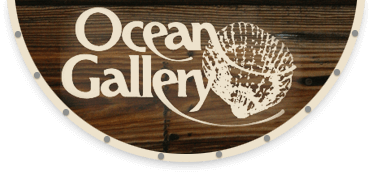
The Ocean Gallery Properties offers professional property management for the Ocean Gallery Resort. We manage and rent the Ocean Gallery's oceanfront.. learn more
Frequently Asked Questions
What Are the Cathedral's Visiting Hours?
You're probably wondering about the visiting hours, right? Typically, cathedrals with significant architecture and historical importance have specific hours to guarantee proper maintenance and visitor flow. Check their official site for precise times. You'll find it's worth planning your visit to appreciate both the stunning architecture and the deep historical significance. Freedom to explore such places often comes with understanding their schedules and respecting their rules.
Are Guided Tours Available at the Cathedral Basilica?
Guided tours are available, offering a thorough exploration into historical architecture and religious significance. You'll delve into the intricate designs and hear stories about the site's spiritual role. Evidence shows these tours enhance understanding and appreciation, making them essential for history buffs and those seeking freedom through knowledge. Don't miss the chance to enrich your visit with expert insights and contextual details about this remarkable place.
Is There an Entrance Fee to Visit the Cathedral?
You're probably wondering if there's an entrance fee. Generally, many historical sites with rich architecture details and significant religious practices don't charge for entry. They rely on donations, especially when community events are hosted. This approach allows everyone to appreciate the historical significance and participate in community events freely. Always check their official website for specific details, as policies can vary based on the site's needs.
Can the Cathedral Basilica Be Rented for Private Events?
You might wonder if such a grand location can be rented for private events. Event rentals in historic sites often come with privacy concerns and strict venue restrictions due to their historical significance. It's vital to inquire directly with the administration to understand the specific policies. They'll provide details on what's allowed, ensuring your event respects the venue's heritage while giving you the freedom to create memorable experiences.
Are There Any Special Services During the Holidays?
During the holidays, you'll find an array of special services that reflect rich holiday traditions and special events. Seasonal decorations and festivities create a unique atmosphere, enhancing your experience. Evidence shows that many places heighten their celebratory efforts during these times, infusing spiritual gatherings with a festive spirit. You'll enjoy a sense of community and freedom as you partake in these thoughtfully curated holiday services.
Vacation Rentals in St Augustine Area Florida








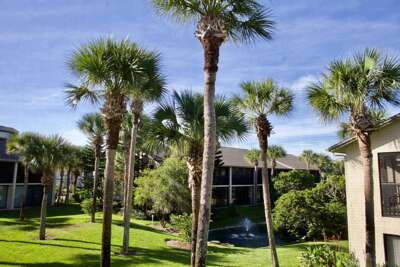



Additional St Augustine Area Articles
Travel Guide to St Augustine Beach Florida
St Augustine Beach Florida
St Augustine Florida Music Festival
November -
St Augustine Florida
Things to Do in St Augustine Florida
St Augustine Florida
Travel Guide




